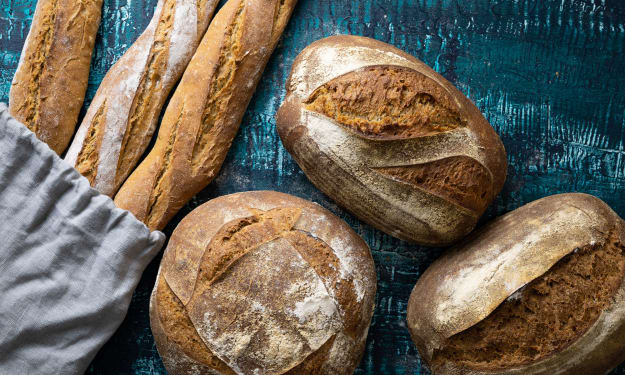10 Tips for Maintaining a Healthy Diet on a Budget
"Nourishing Your Body without Breaking the Bank: Practical Strategies for a Budget-Friendly Healthy Diet"

Eating a nutritious diet is essential for overall health and well-being. However, many people believe that maintaining a healthy diet requires a hefty budget. The truth is, with proper planning and smart choices, it is possible to nourish your body with wholesome foods without breaking the bank. In this article, we will share ten practical tips for maintaining a healthy diet on a budget. From meal planning and shopping strategies to cost-effective ingredient substitutions and mindful eating practices, we will provide you with the tools and insights to prioritize nutrition while being mindful of your finances. Get ready to discover how you can optimize your food choices and embrace a healthy lifestyle without straining your budget.
Meal planning is a crucial step in maintaining a healthy diet on a budget. By planning your meals in advance, you can avoid impulsive purchases and make the most of your grocery budget. Start by creating a weekly or monthly meal plan and write down a shopping list based on the planned meals. Set a realistic budget for your groceries and stick to it while you shop.
Plant-based proteins, such as beans, lentils, chickpeas, and tofu, are not only affordable but also nutritious. Incorporating more plant-based proteins into your diet can help you save money while still meeting your protein requirements. Experiment with different recipes and explore the versatility of these budget-friendly protein sources.
Buying in bulk can significantly reduce your grocery expenses. Look for pantry staples like rice, pasta, oats, nuts, and seeds in bulk sections or wholesale stores. Purchasing larger quantities of non-perishable items can be more cost-effective in the long run. Just ensure that you have proper storage containers to maintain freshness.
Fruits and vegetables that are in season tend to be more affordable and abundant. Visit local farmers' markets or consider joining a community-supported agriculture (CSA) program to access fresh produce at reasonable prices. Not only will you support local farmers, but you'll also enjoy the benefits of seasonal and locally sourced foods.
Frozen and canned fruits and vegetables are budget-friendly alternatives to fresh produce, and they often retain their nutritional value. Stocking up on these items can help you save money while ensuring a supply of nutritious ingredients for your meals. Look for options without added sugars or preservatives.
Cooking in bulk and meal prepping can save both time and money. Prepare larger portions of meals and divide them into individual portions for future consumption. This approach minimizes food waste and allows you to have ready-made meals on hand, reducing the temptation to opt for unhealthy takeout options.
Processed and convenience foods tend to be more expensive and often lack nutritional value. Limiting your intake of pre-packaged snacks, sugary beverages, and processed meals can not only improve your health but also save you money. Instead, opt for whole foods and prepare homemade snacks and meals.
Transforming leftovers into new dishes can help you stretch your food budget. Reinvent last night's dinner by incorporating it into a salad, sandwich, or stir-fry. Let your creativity shine as you find innovative ways to repurpose leftovers, reducing food waste and maximizing your resources.
Practicing mindful eating can help you appreciate the flavors and textures of your meals while preventing overeating. By being fully present during mealtime, you can savor each bite, feel satisfied with smaller portions, and avoid unnecessary expenses associated with excessive food consumption.
Consider growing your own herbs, vegetables, or fruits, even if you have limited space. Container gardening or joining a community garden can provide you with fresh, affordable produce. Growing your own food not only saves money but also connects you with the process of nurturing and harvesting your own nutritious ingredients.
Maintaining a healthy diet on a budget is achievable with the right strategies and mindset. By implementing these ten tips, you can prioritize nutrition without straining your finances. Plan your meals, embrace plant-based proteins, buy in bulk, and shop seasonally and locally. Opt for frozen and canned foods, cook in bulk, and minimize processed and convenience foods. Get creative with leftovers, practice mindful eating, and consider growing your own food. By making intentional choices and being mindful of your spending, you can nourish your body while sticking to your budget.
please! if you are satsified don't forget to like to leave comment and subscribe on my account.Thank you for your support!
About the Creator
MUGISHA Rabsson
Mugisha Rabsson is a seasoned writer dedicated to helping individuals navigate the complex world of personal finance,life,families,nature,health,nutrition,technology,caring,...






Comments
There are no comments for this story
Be the first to respond and start the conversation.